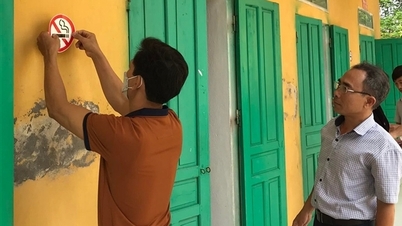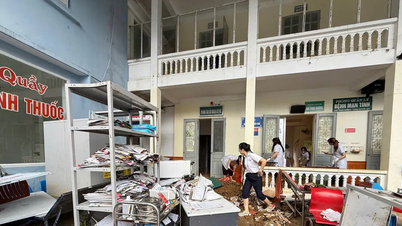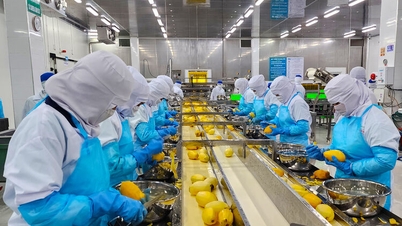On May 14, Friendship Hospital informed that doctors from the hospital's Intensive Care and Anti-Poison Department had successfully treated a patient in hepatic coma due to acute liver failure and viral hepatitis B.
Doctor To Hoang Duong - Deputy Head of the Department of Intensive Care and Anti-Poison said that patient D.TTH (female, 43 years old, in Hung Yen ) had a history of breast cancer; was admitted to the hospital with symptoms of fatigue, loss of appetite, and fever. The patient was examined and diagnosed with hepatitis B virus, and the viral load was measured to be high. The patient was then treated with antiviral drugs and liver function support. However, the patient's condition improved little, with elevated liver enzymes, accompanied by rapidly progressing jaundice, blood clotting disorders, and impaired consciousness.
The patient was intensively resuscitated, and through examination, the patient was found to be in a hepatic coma. Tests showed that the patient had billions of hepatitis B viruses in his blood, liver enzymes and Bilirubin (a substance that causes jaundice) increased dozens of times higher than normal, causing the patient to fall into a coma, a very severe blood clotting disorder, and a very high risk of cerebral hemorrhage and gastrointestinal bleeding. The patient was diagnosed with: Hepatic coma due to acute liver failure, viral hepatitis B, on the background of breast cancer.
Acute liver failure is a fairly common complication when patients have acute hepatitis B. Acute liver failure can lead to blood clotting disorders causing bleeding from the skin, mucous membranes, gastrointestinal bleeding, especially cerebral hemorrhage. On the other hand, increased bilirubin in acute liver failure can cause coma and the patient may die.
Doctor Duong said that plasma exchange is a blood filtration method in which plasma containing “pathogens” or “toxic substances” in the patient’s blood is filtered and then replaced with “healthy” plasma from a blood donor to help eliminate disease-causing factors, support liver function in the weakened stage, creating conditions for the patient’s liver to recover. This modern method has supported the treatment and saved the lives of many patients with acute liver failure due to viral hepatitis or poisoning.
The Intensive Care Unit performed 4 plasma exchanges for the patient, with a total of 12 liters of plasma used. After each dialysis session, the patient gradually improved in consciousness, alertness, and fatigue. The jaundice, increased liver enzymes, and blood clotting disorders improved. Currently, the patient is awake, eating by mouth, and moving around on the spot./.
(Vietnam+)
Source: https://www.vietnamplus.vn/cuu-song-nu-benh-nhan-nhan-co-hang-ty-virus-viem-gan-b-trong-mau-post1038456.vnp


![[Photo] Prime Minister Pham Minh Chinh chaired a meeting of the Steering Committee on the arrangement of public service units under ministries, branches and localities.](https://vphoto.vietnam.vn/thumb/1200x675/vietnam/resource/IMAGE/2025/10/06/1759767137532_dsc-8743-jpg.webp)




![[Photo] Prime Minister Pham Minh Chinh chairs a meeting of the Government Standing Committee to remove obstacles for projects.](https://vphoto.vietnam.vn/thumb/1200x675/vietnam/resource/IMAGE/2025/10/06/1759768638313_dsc-9023-jpg.webp)























































































Comment (0)